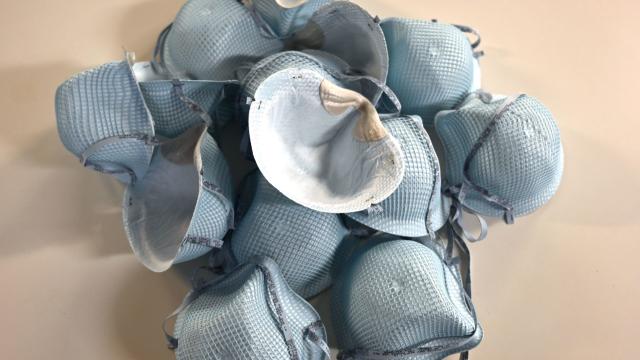News on the global coronavirus is breaking so quickly that developments can happen on a minute-to-minute basis. But getting the most updated information about covid-19—and discerning which bits are correct—has been hampered severely by a scourge of misinformation spreading like wildfire, as well as a number of public officials who’ve pushed misleading information and in many cases outright lies about the disease and its spread. A newly published analysis from researchers at Stanford University lays out how bad information about covid-19 has spread since the start of the year.
The research from the Stanford Internet Observatory’s Cyber Policy Centre examined several unfounded accusations about the origins of the deadly coronavirus outbreak over the last few months. The researchers combed social media outlets like Facebook, Instagram, Twitter, YouTube, Weibo, and Reddit in English, Chinese, and Japanese to trace the threads. In particular, the researchers examined the spread and development of conspiracy theories that the novel coronavirus strain SARS-CoV-2 was engineered by humans and that members of the U.S. military who took part in the Military World Games in Wuhan in October of last year had a hand in bringing it to the region.
This particular baseless conspiracy theory was shared on social media as well as by Zhao Lijian, an official with the Chinese Foreign Ministry’s Information Department, and stems from the political finger-pointing between the United States and China that’s been exacerbated by the pandemic. Weeks prior to that, variations of the claim that the virus that causes covid-19 was actually some kind of genetic warfare circulated on social media in posts the researchers were able to track back to at least early January (though they noted that earlier posts may have been removed as platforms clamp down on coronavirus misinformation).
But their findings indicated that that from the time the conspiracy theories started, they had been disseminated—and had snowballed—across various social sites, state media, and eventually a public official. The researchers also found that the narrative about the virus’s origins from official Chinese media changed dramatically over a period of weeks. But the spread of misinformation about the virus is not merely limited to Chinese officials and media.
The researchers also noted a conspiracy theory by Senator Tom Cotton about the possibility that the virus was created in a lab. (This baseless theory was, of course, shared by Cotton on Fox News.)
The researchers noted that this sharing of information from sources both official and unofficial during a time of extreme uncertainty made for a kind of perfect storm of misinformation about the disease.
“In times of uncertainty, speculation, and political blame games, continued vigilance is key when it comes to assessing and sharing information—even, or sometimes especially, when it comes from state channels,” the authors wrote. “Social media companies need to maintain their efforts to proactively remove unfounded speculation and disinformation on their own platforms, regardless of who posts it. Citizens and journalists should question the intentions an actor promoting online content may have before possibly amplifying misleading voices.”
The study of how this information spreads is also a good reminder that even presumably well-intentioned actors can share misleading, presumptive, or straight-up wrong information. For example, Apple co-founder Steve Wozniak tweeting that he suspected he and his wife were “patient zero” in the U.S. Or, less innocently—but no less recklessly—U.S. and Chinese officials stating publicly that the virus is a lab-baked bioweapon. Sadly, the reality is far more bleak than conspiracy theorists can imagine.
